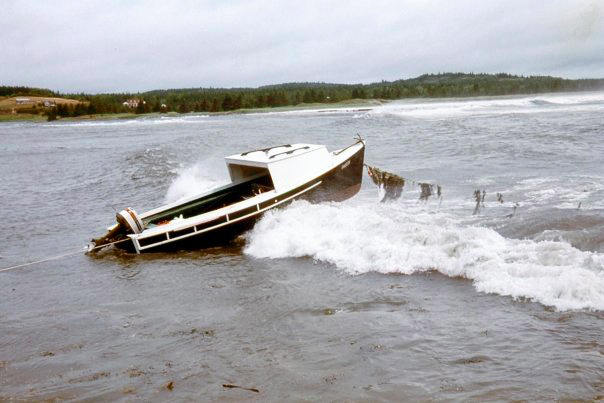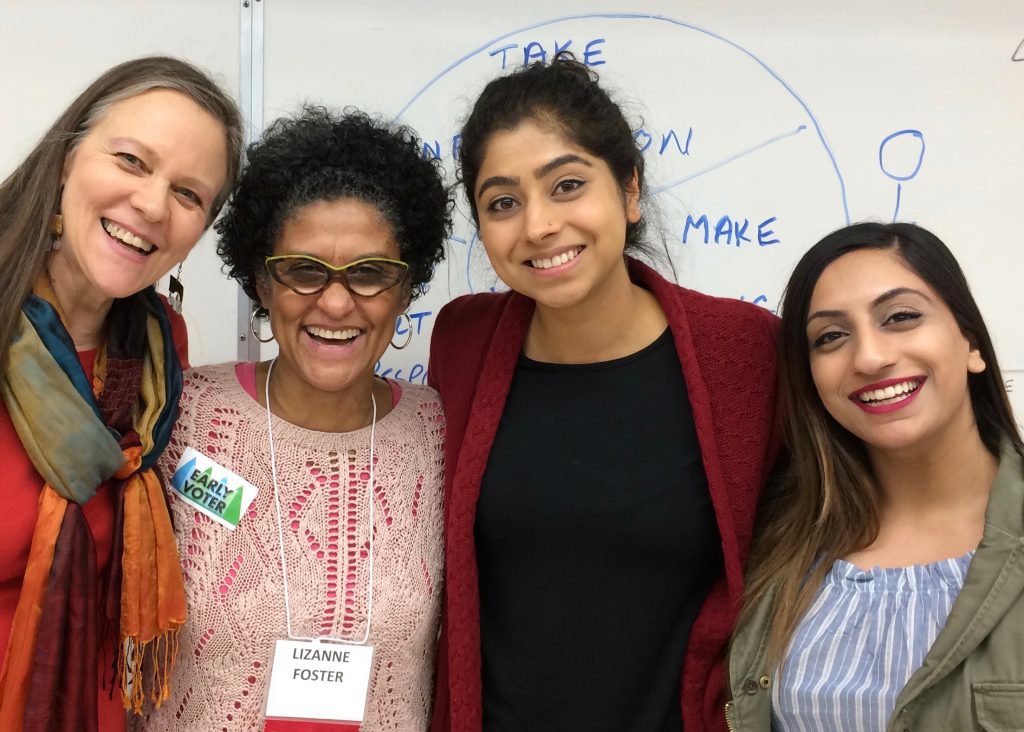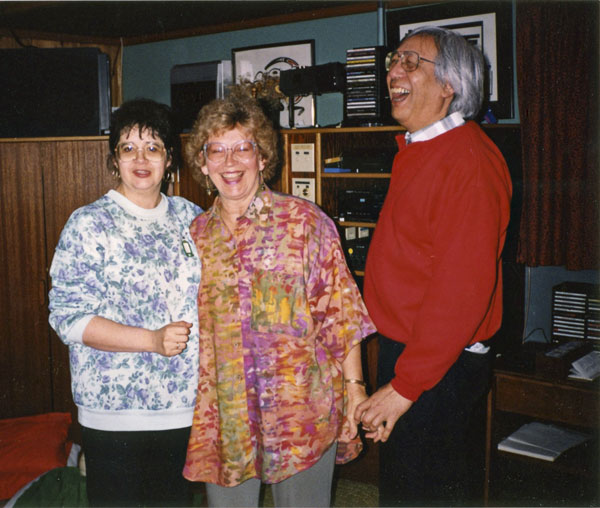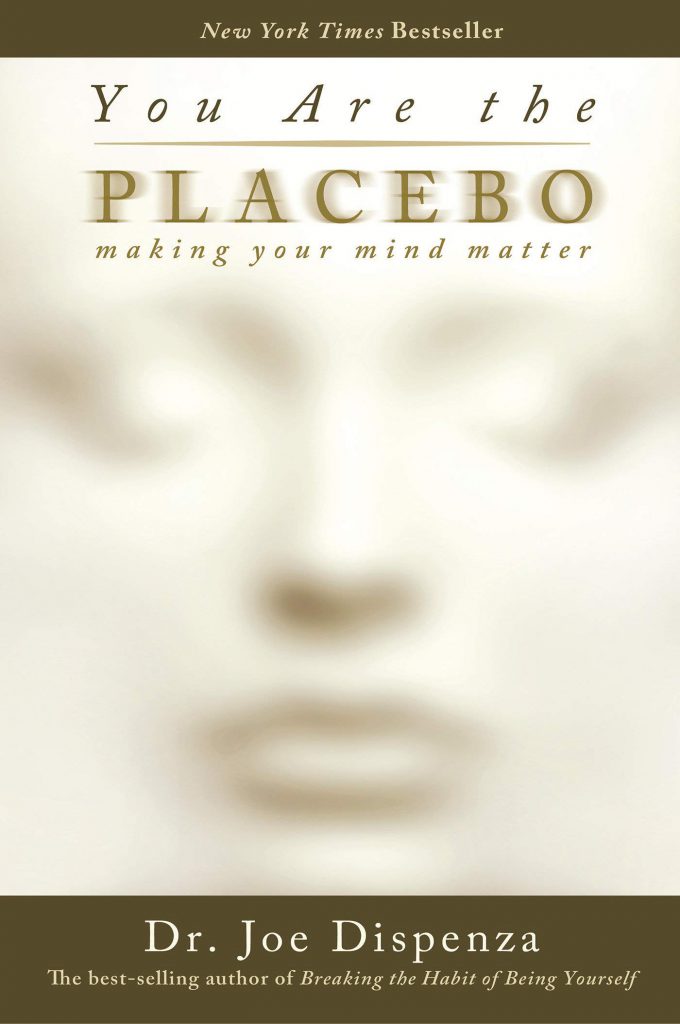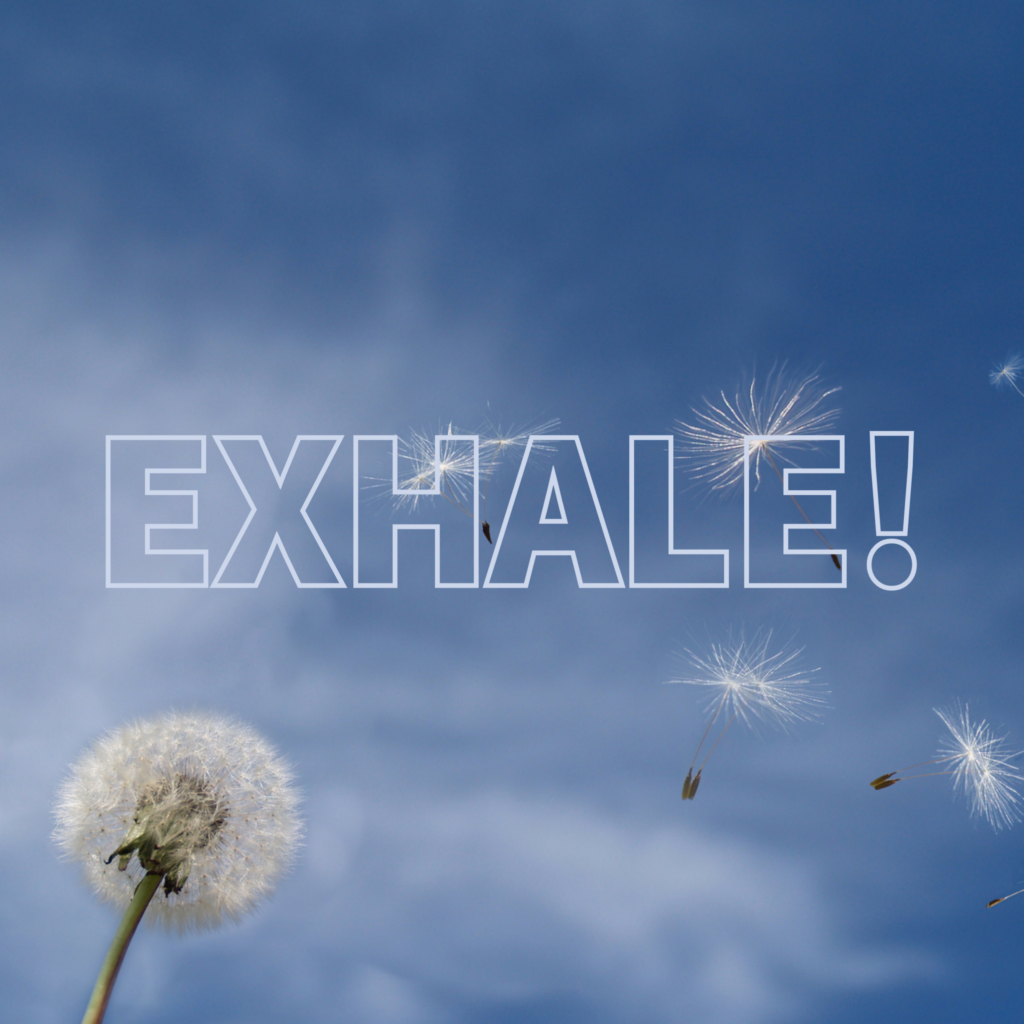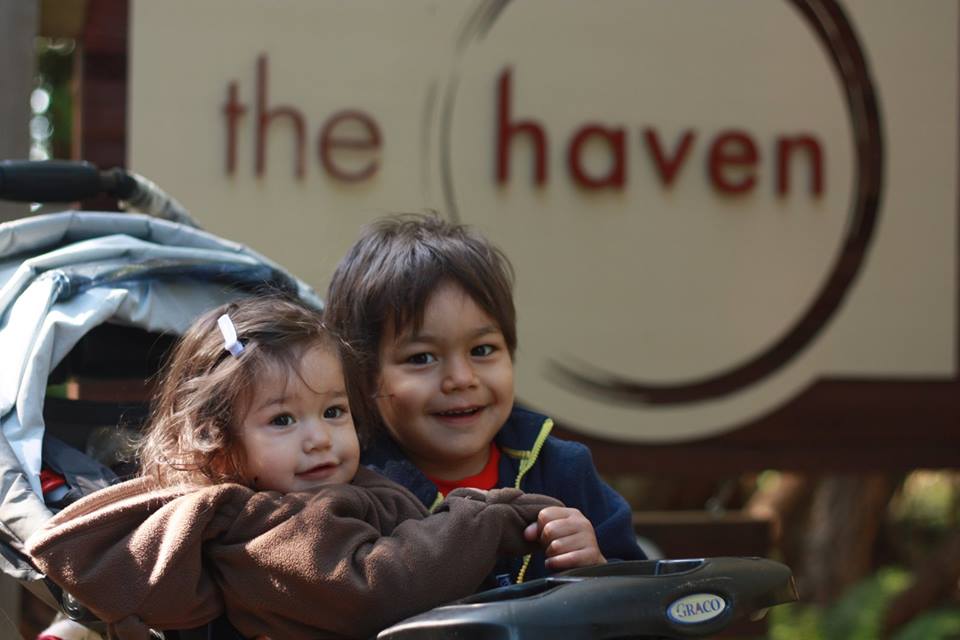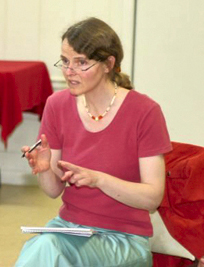From Anxiety to Aliveness: A Boating Story
Jennifer Hilton tells the story of a childhood boating accident, the anxiety it led to in later life, and how she has learned to transform it in her life today.
Jennifer Hilton tells the story of a childhood boating accident, the anxiety it led to in later life, and how she has learned to transform it in her life today.
In Transforming Anxiety and Stress, a program I co-lead at The Haven, I often share some personal traumas from my childhood as examples of fears or threats turned inward that can result in long-term anxiety. I also share how I’ve learned to transform this anxiety into a greater sense of aliveness!
One of these stories concerns a family boat ride when I was eight years old. On a perfect summer’s day, my mother, my older brother and I boarded my father’s small Cape Islander fishing boat (shown in the photo). We had a picnic packed and were going to spend the day on a favourite island. Dad had just purchased and mounted his shiny new compass at the helm and the boat was sporting a new, more powerful engine. My brother and I, in our orange canvas life vests, sat across from each other on the green wooden benches that still smelled of paint in the heat of the sun. My father, sunglasses glinting, stood up tall to steer the boat, the ocean breeze in his hair and a smile on his face. I loved seeing him so happy! Mum sat beside my brother and she, too, seemed happy, enjoying the fresh air and sunshine.
To reach our favourite picnic spot we had to cross a section of water called Crooked Channel, noted for rushing tides and often choppy waters. Dad, frequently known to be reckless, decided to test his new engine, and in the spirit of adventure, pushed the throttle to full speed. I recall the sound of the engine revving as if it were yesterday! I felt myself grip harder under the bench and hunkered down to avoid the sea spray that was coming in over the side as we rode up one wave and down another. I remember saying in a small voice, “Please slow down, Daddy!” Suddenly we hit a big wave – so big that it launched the bow high into the air. The boat crashed down with such force that I was thrown across to the other side and my brother, thrown the opposite way, hit his head on the bench. I could see blood coming from his head! Frightened, we both lay still on the boat floor. I remember feeling, oddly enough, alone. All I could hear was the cursing and yelling. The engine had stopped and my parents were locked in a vicious argument. Dad’s compass had fallen off its mount and smashed to smithereens, which fuelled his rage, while Mum was blaming him bitterly: “Now look what you’ve done, scared the children!”
But no one was looking after my brother or comforting me, even though the water was still very rough. I crawled into the cubby feeling like a wounded animal in hiding.
Eventually, the shouting stopped. My father, grumbling to himself, was picking up the shattered compass glass from the boat floor. Mum had demanded we turn around and go home. I think I heard something like, “It’s safe to come out now, Jennifer,” but I didn’t move.
That was the end of our family picnic. When we got back, I remember going into my room and crying, alone, trying not to be heard.
From that day on I did not set foot in a motorboat on the ocean for at least ten years. My father suffered immense guilt about the episode. He tried to apologize many times, hopefully inviting me out for boat trips. He wanted me to go fishing with him and learn about boating. My mother also tried to encourage me. Each time I was invited on a trip, I refused, politely, sometimes ending up alone while others enjoyed boat trips together. I knew at some level this was the start of a deep fear or phobia – that being on a boat on the ocean was not safe – it was actually a threat to my existence!
Fast forward to now. As fate would have it, I am in a long-term relationship with a man who loves fishing and being on his boat. At least twice a year, we spend time on the Sunshine Coast, partly on his boat. Over the years, I’ve taken small risks in going with him in different weather conditions. First, it was only on calm days, an exception I started to make to my “no boat, no ocean” rule. Each time I get on the boat, I say to myself – “I am here, now, it’s today, with my partner. I’m not eight years old in the past with my father.” I call this “growing myself up,” and by consciously thinking about it this way, I am re-wiring the trauma circuitry in my brain. I do have to breathe and ground myself by reminding my partner of my wishes to go back to shore if the waters get rough. Each time he does, I take note, again updating my own interpreted level of safety. There have been times we have been caught in rougher waters and I have learned to hang on to him and breathe, keeping myself alert to what is happening in the present. It also helps when I have a job to do, like looking out for logs in the water.
Last time we were out I had a breakthrough! We were coming around a point and I could see choppy waters ahead. I felt the old anxiety, the elevation of energy in my body, and my heart started beating faster. I gripped his arm. He looked at me and asked if I was OK. Without skipping a beat, I said, “Actually, I am OK, and I think I am excited!” I said it again, “I am excited!” and started laughing. As we rode the choppy waters, I felt my legs firm and flexible underneath me, bouncing with the rhythm of the waves. I let my neck and upper body loosen and flow with the rocking. I watched my partner skillfully steer and master his boat in the choppy waters and felt a sense of relief along with a full aliveness – as if I had let go of something I had been hanging onto for a very long time. Tears of joy ran down my face!
This experience has given me more faith in myself, understanding that I do have agency over my past traumas and how they impact me today. Today, I have tools to transform the anxiety (fear turned inward) into something more enlivening. I am no longer the helpless eight-year-old having just experienced being emotionally and physically scared or wounded. I am an adult with the choice to engage in the present, be with others and ask for support. I can express my boundaries, in relationship (what I want/don’t want), and be body-aware.
In Transforming Anxiety and Stress, we believe there is a more expansive approach to harnessing anxiety and being more present with interpreted events from the past. There may be an external “trigger”, for our anxiety or fear, or it may seem entirely self-created. Anxiety is a natural human response to interpreted and internalized threat, as we become aware of our own fragility and “aliveness.” We can accept, breathe into the moment and then express the elevated energy of anxiety rather than suppress it, and become more comfortable/familiar with it in the process.
If you want to transform your anxiety and stress:
Engage! Express! Expand!
- Take a deep breath. Pause. Realize that each moment is new. Plant your feet and notice what’s going on inside you in the moment, and outside in your environment.
- Connect with the people around you or reach out to someone. Express your thoughts and feelings and equally important, be curious and listen to the people that matter to you.
- Move your body! Dance, shake, walk, stretch, climb, etc. and even better, go outside and be in nature with a pal. Remaining still, numbing out, suppressing feelings, holding on to old beliefs and feelings and identifying with them, all support the discomfort, chaos and isolation of attempting to push away or ‘manage’ anxiety.
- Take small risks. Choose one small step … regularly. Taking small risks like this can lead to a more resilient, expansive and confident experience of life: A sense of ‘home’ in your body and a sense of ‘home’ in the world.
Please join me and Graemme Brown for Transforming Anxiety and Stress, March 28–31, 2019, to expand your understanding and gain tools to support, relieve and harness anxiety and stress to fuel your aliveness!

